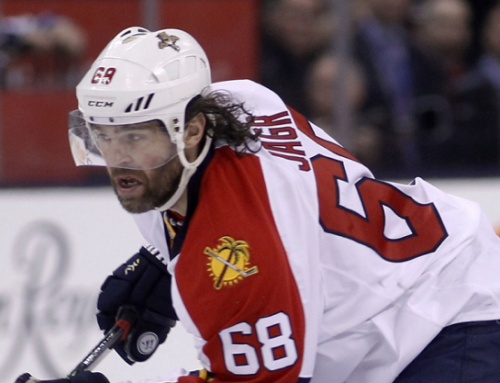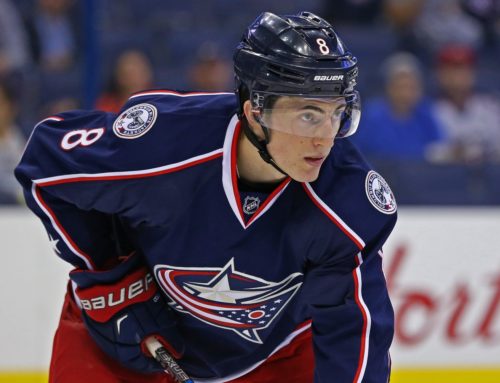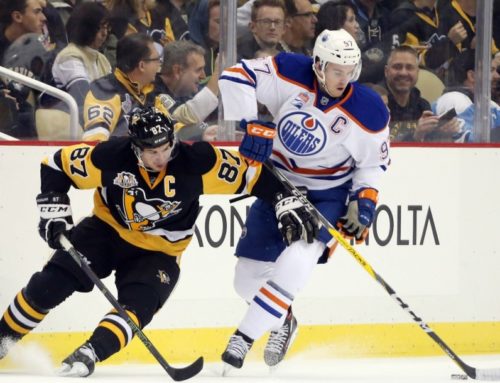
The Maple Leafs are making the same mistakes despite their public embrace of analytics.
We are back to our old Contrarian ways this week, looking at James Mirtle's September 12th article in The Globe and Mail titled "Tim Leiweke on the Leafs: 'Analytics makes us smarter'".
It is not Mirtle I am going to argue against but what Tim Leiweke says to a group at Ryerson University earlier this week. The link to the webcast prompts for a password so I am left only to use what Mirtle extracted from it.
But first we need context. That is also provided by Mirtle in his article first published on November 11, 2013, called "Mirtle: Nonis not yet a believer in hockey's statistical push".
Nonis was quoted at the PrimeTime Sports Management Conference as saying:
"The last six, seven years, we've had a significant dollar amount in our budget for analytics and most of those years we didn't use it."
"We couldn't find a system or a group we felt we could rely on to help us make reasonable decisions."
"The biggest thing we use is going to watch a player play. I haven't seen anything that's going to stop that from being the primary source of our decisions."
"People run with these stats like they're something we should pay attention to and make decisions on, and as of right now, very few of them are worth anything to us."
James expands on Nonis' logic behind those statements, "[Many] statistics rely on data that is 'polluted' by poor record keeping by the various arenas, that 'hard stats' like ice time and points are more useful and reliable, and that many advanced statistics being used are 'not accurate' or 'relevant.'"
He does end that article with a bit of foretelling thought from Nonis, "That will change. I predict this [SportVU type of] technology is going to help us. There will be a stat that will help us make some decisions; I think that is coming."
Oddly enough Mirtle's column had a link to ExtraSkater.com showing back then the Leafs' poor puck possession numbers. A little ironic now that the Leafs hire Darryl Metcalf (founder of ExtraSkater.com) along with Assistant GM Kyle Dubas to run their analytics department.
Back to the present and Leiweke's words.
If that was all there was then I would probably be writing about something else but we are given more quotes from Leiweke, "There are players we have in our organization today whose numbers are off the chart good and whose character is just terrible. I don't care how good your numbers are, if you have bad character, you are doomed for failure."
What did he just say? Some of his players, ones with great analytics, have terrible characters? Oh-no! What was he thinking?
If Nonis is trying to move these bad eggs off onto other teams then his comment will be triggering alarm bells for the other 29 GM's. Why would he do this? Why would he spend so much time and money to gain a competitive advantage only to undercut it by announcing that some of his best players are not really good for the team?
Even TSN's Scott Cullen jokingly tweeted "Someone on the Leafs has analytics numbers that are off-the-charts good?"
I am convinced that comments made like that only work against all the good the Leafs are trying to do and can only suggest some fatherly advice taken from Vito Corleone to son Santino in The Godfather, "Never tell anybody outside the family what you're thinking again."
Leiweke goes on, "We are very convinced analytics make us smarter. We are very convinced that analytics will reduce our mistakes. We are convinced that analytics at the end of the day will be key to getting this team back on track. But that said they will never ever replace our ability to determine one's character and passion for the game of hockey. You have to be good at both, not just one."
He previously admitted that the team was wrong in their past non-stat assessments of some players still on the team and now he indicates that they have to be good at both evaluations.
So how do the analytical stats change the "you have to watch them" test? The answer is that they don't.
Is it implied that they got better in the eye test when they replaced their assistant coaches and assistant GM's this summer? The proof of that will only be revealed as the future games are played out.
In Scott Cullen's analysis of the Leafs he points out that they really lost their way in the last 20 games of the 2013-14 season. The fact is that the team was basically the same from the start to the end of the season with the same poor possession stats throughout and they were in the hunt for the playoffs.
We are kidding ourselves if we believe that Dave Bolland, Jerry D'Amigo, Tim Gleason, Carl Gunnarsson, Nikolai Kulemin, Drew MacIntyre, Jay McClement, Paul Ranger and Mason Raymond, all players that were removed from the Leaf roster this summer, must have been some of those bad character guys.
The question remains, how did the Leafs get better in the eye test?
I applaud them for trying to improve and I am encouraged that they will find some value using advanced stats. Even armed with a new set of analytical statistics it seems like the Leafs are making the same mistakes again.





 ANA
ANA PHI
PHI VAN
VAN DET
DET BUF
BUF NYR
NYR MIN
MIN TOR
TOR
